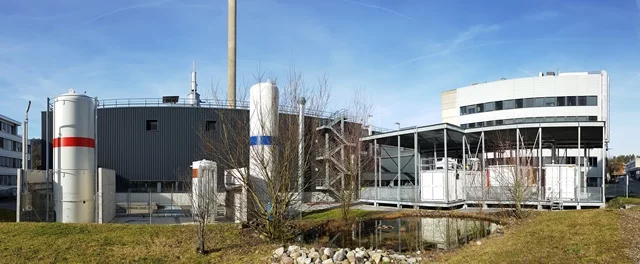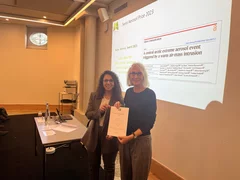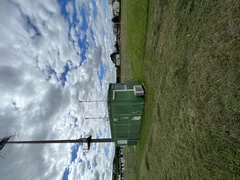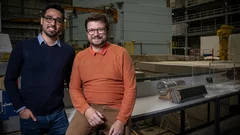Energy and Environment Research Division
Research at PSI comprises all aspects of human energy use, with the ultimate goal of promoting development towards a sustainable energy supply system. Technologies are being advanced for the utilization of renewable energy sources, low-loss energy storage, efficient conversion, and low emission energy use. Experimental and model-based assessment of these emissions forms the basis of a comprehensive assessment of economic, environmental and social consequences, for both present and future energy supply systems.
Division Head: Prof. Dr. Thomas Justus Schmidt
Energy Briefing Event 2023
The Energy and Environment Division of the Paul Scherrer Institut PSI successfully hosted their second Energy Briefing Event at the Zentrum Paul Klee in Bern. The event focused on the potentials and challenges associated with the production, regulation, and utilization of synthetic fuels. Representatives from WWF, Avenergy, PSI, and BAZL shared their expertise and insights on this topic.
A heartfelt appreciation goes out to Ulrich Koss (Metafuels), Theo Rindlisbacher (BAZL), Christian Bach (Empa), Thomas J. Schmidt (PSI), Thomas Häusler (WWF Switzerland), Daniel Hofer (Avenergy Suisse), and our moderator Stephan Lendi for their invaluable contributions and insightful perspectives.
Energy Briefing Event 2022
On June 28th, 2022, the Energy Divisions (ENE and NES) at PSI hosted their first Energy Briefing Event at the Kursaal in Bern. Knowledgeable voices from industry, research and government shared insights in a dialogue on the feasibility of the Net Zero goal and what next steps are required to achieve this collectively.
A big thank you to Daniela Decurtins (GazEnergy), Particia Sandmeier (Hitachi Energy), Martin Naef (ABB), Pascal Previdoli (BFE), Thomas Schmidt (PSI), Christian Verhoeven (GE), Peter Richner (Empa), Andreas Pautz (PSI) and our Moderator Stephan Lendi for their valuable contributions and insights!
Highlights & News
Is climate-neutral air travel possible?
Air transport too is to become climate-neutral – how can sustainable fuels, like those developed at PSI, contribute to this?
Glacier melting destroys important climate data archive
PSI researchers analysed two ice cores from the Corbassière glacier on Grand Combin.
Deciphering the Skies: Lubna Dada receives Ambizione grant funding for "BioPSI" Atmospheric Research Project
Lubna Dada, Scientist at the Laboratory of Atmospheric Chemistry (LAC) at the Paul Scherrer Institute (PSI) was granted the Ambizione Grant 2023 with her project “Biological Particle Sources and Impact (BioPSI)”. Lubna’s journey of her visionary research project “BioPSI” is set to commence in January 2024, with the anticipation of welcoming a PhD student into the project.
How important is hydrogen for the energy transition?
Assessments by PSI energy expert Thomas J. Schmidt
Lubna Dada wins Swiss Aerosol Award 2023!
Dr. Lubna Dada, scientist at the Laboratory of Atmospheric Chemistry, at Paul Scherrer Institute received the Swiss Aerosol Award 2023 from the Swiss Lung Foundation in Bern for her excellent work on warm airmass intrusions from mid-latitudes into the Arctic.
New Study Reveals Surprising Climate Benefits of Agriculture
The big challenges our planet faces—like climate change, food supply, water, and biodiversity—are all interlinked. While agriculture continues to be the primary source of food for human kind, it imposes climate challenges especially through emissions like greenhouse gases and ammonia. To solve this, we need a new approach that reduces the harmful effects of farming on the climate.
Better batteries for electric cars
PSI researchers make physical and chemical changes in batteries visible.
How trees influence cloud formation
Researchers at PSI have taken a closer look at a previously disregarded factor in the formation of clouds. This could improve the accuracy of climate forecasting.
How can cobalt be reduced in EV batteries?
The electrification of transport is increasing. This means, more batteries are needed. However, some of these batteries contain an extremely problematic raw material: cobalt. PSI is researching alternatives.















